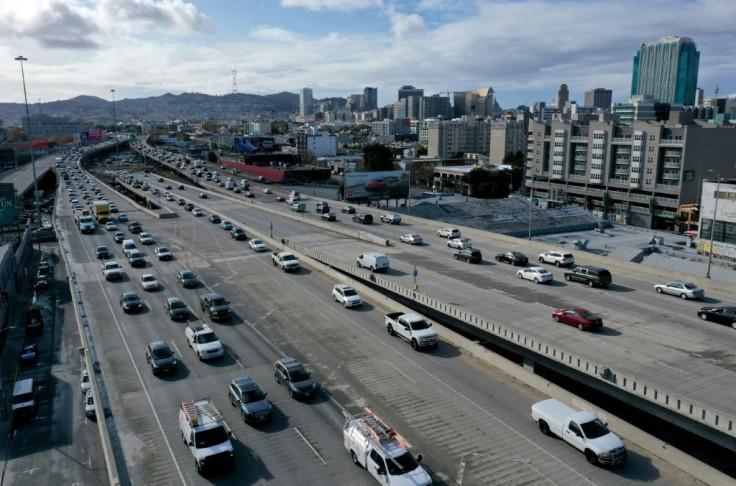Infrastructure Bill 2021 Hides Pilot Program To Track Drivers' Travel Data
KEY POINTS
- Proposal to use GPS trackers among others to determine miles traveled
- The "mass surveillance" program raises concerns of privacy and data security
- Environmentalists argue that the per-mile traveled fees could slow the adoption of EVs
The $1.2 trillion bipartisan infrastructure bill could pave the road for a four-year pilot test program, through which the government would be allowed to collect drivers' data to charge a vehicle-mile traveled tax (VMT). The new revenue system will finance the Highway Trust Fund, which currently depends on fuel taxes.
Initially, the government would use volunteers for both commercial and passenger vehicles to test the program. The proposal would allow the government to collect information about the miles that drivers travel using GPS, smartphone apps, an on-board device, insurance companies, gas stations and automakers among others, reported The Intercept. Under the bill, an advisory board will be established, which would include officials representing state transportation departments and the trucking industry, data security and consumer privacy experts.
In March, Transportation Secretary Pete Buttigieg told CNBC, “If we believe in that user-pays principle—the idea that how we pay for roads is based on how much you drive—the gas tax used to be the obvious way to do it. It’s not anymore. A so-called VMT tax or mileage tax, whatever you want to call it, could be a way to do it.”
Environmentalists are advocating against the proposal. They argue that the shift is premature as only a fraction of the cars on the road are EVs and the new tax could possibly slow their adoption, reported The Washington Post. Moreover, gas-guzzling vehicles would get a tax break and vehicles with relatively high fuel efficiency might end up paying more.
The bill also raises major privacy concerns as its main feature is government mass surveillance of citizens' vehicle locations.
Sen. Ron Wyden, a well-known surveillance critic, believes that more study of privacy issues is necessary before a VMT proposal is permanently adopted.
“He is opposed to all approaches that lead to the persistent location tracking of personally owned vehicles, but supports creative pilots to find other solutions,” Wyden's spokesperson, Keith Chu, told The Intercept.
The government has been looking into different fees to provide the Highway Trust Fund with revenue. The fund had lacked revenue to support the federal spending on highways and had to borrow from the Treasury Department.
The Congressional Budget Office (CBO) has projected that the fund could be short by nearly $195 billion between 2022 and 2031 if current fuel taxes remain in place. CBO suggested increasing fuel taxes or adopting new taxes such as VMT or taxing EVs to increase revenue. However, Chu said Wyden does not want to make EVs more expensive.

© Copyright IBTimes 2025. All rights reserved.





















